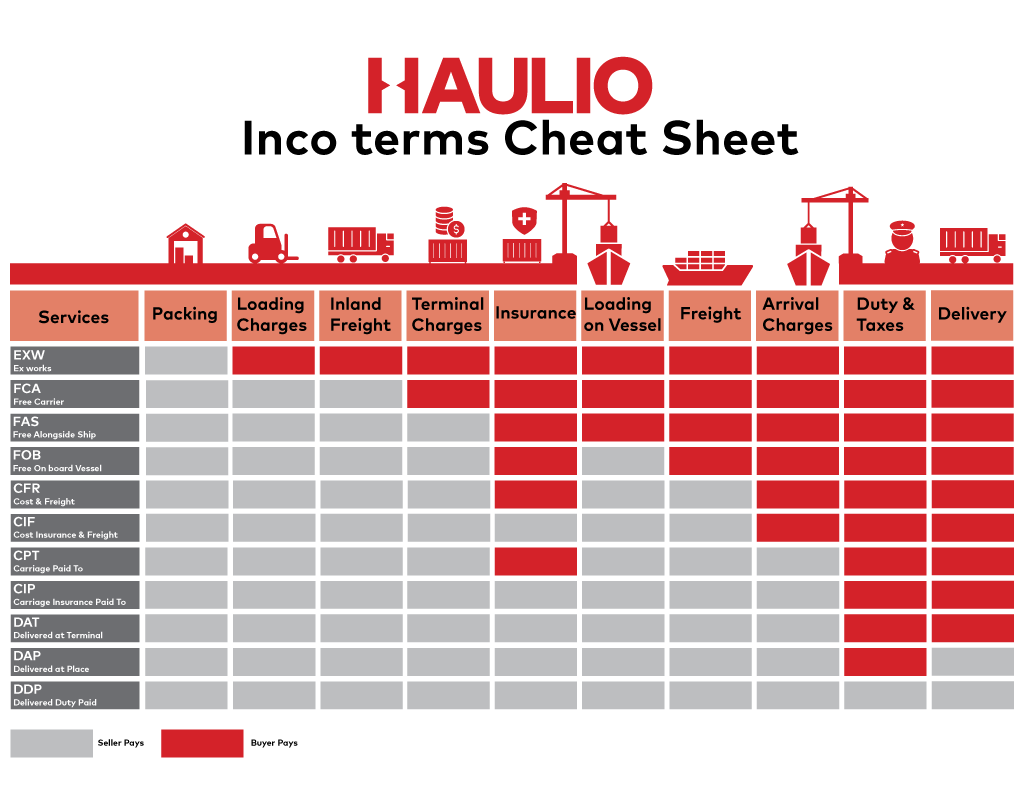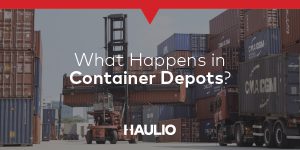Consequences of using incorrect Incoterms®
What are Incoterms®?
Incoterms® are international commercial terms mandating and communicating how the cost, risks and obligations are allocated and shared among each respective party involved in the international transportation and delivery of goods and cargo.
Established by the International Chamber of Commerce in 1936, it is recognized and enforced worldwide by governments, legal trade authorities and practitioners as the standard interpretation of the most commonly practiced international trade terms, and is a measure to remove any uncertainties arising from different interpretation of international commercial and trade rules.
Consequences of Practicing Wrong Incoterms®
Incoterms® were created to address the risk of misunderstanding and costly disputes in domestic and global trade, where sales contracts may not adequately communicate all the conditions for the smooth international transport of cargo from sellers to buyers.
The consequences of practicing wrong Incoterms® can lead to disputes that cost money, time and unnecessary risks, which could be detrimental for all parties involved.
Malpractice of Incoterms® happens most often due to some of the following reasons:
- Inappropriate rules being used for the chosen mode of transport due to the lack of understanding of costs and risks allocation between the buyer and seller
- Usage of incorrect version of Incoterms® rules
- Rules not being geographically specific
- Misunderstanding of Incoterms®’ functions
- Using rules that do not suit the requirement(s) of the business

1. Inappropriate rules being used for the chosen mode of transport
Improper usage of Free-on-board (FOB) is an example of improper Incoterms application. It is only suitable for cargoes where the shipper is responsible for delivering/loading the goods on board the ship such as with bulk/break bulk cargoes on a free in/out basis. It is not suitable for use in containerised cargoes which are usually delivered to a container terminal where it is received under the control of the carrier and not on board the ship.
Lack of understanding of exact conditions of the costs and risks stated in the Incoterms between the buyer and sellers can have costly consequences as well. This is because even though most Incoterms are straightforward and usually applied in the same way, there are still certain costs like THC (terminal handling charges) that still varies from port-to-port based on the port’s required amount. In some ports, the carrier may provide a free out option but in other ports, it could be imposed separately.
Exact conditions of CIF and CIP can be misunderstood as well, as the Incoterms rules only requires a minimal level of cover hence both parties need to understand the precise extent of the insurance coverage provided for their cargo. Lapses in understanding of the exact conditions of these Incoterms can lead to unnecessary delays of shipments and extra costs.
2. The use of an incorrect version of the Incoterms® rules
3. Leaving out geographical details within the rules
4. Failing to perceive what the Incoterms rules does and does not do
5. Picking rules that are not suitable for the requirement(s) of the business
Sellers and buyers must comprehend the environment of which their business is taking place in. Different countries have different sets of rules and regulations and both parties must come to a conclusion on what can and cannot be done.
For instance, terms such as the DDP terms places maximum responsibility on the seller. Under these terms, the seller is held fully responsible for any payable import duties and all applicable taxes till delivery. Thus, the seller must be certain that they fully understand the requirements and have adequate confidence in their ability to undertake these responsibilities. Failing to do so could lead to the jeopardization of the transaction.
Henceforth, increasing costs, risks and introducing delays and further potential losses of future business. On the other hand, terms such as the EXW terms holds the buyer responsible from the time of loading of the goods, inclusive of the completion of export clearance procedures, which the buyer may not be familiar with.
Conclusion
Incoterm rules were established to address the risk of misunderstanding and costly disputes in global and domestic trade whereby sales contracts are not sufficiently prepared. As the influx and intricacy of global trade increases, so does the potential of incorrect Incoterms® use. It is thus essential for users to understand it before declaring.
Questions?
Get in touch with us and we’ll be glad to support!







